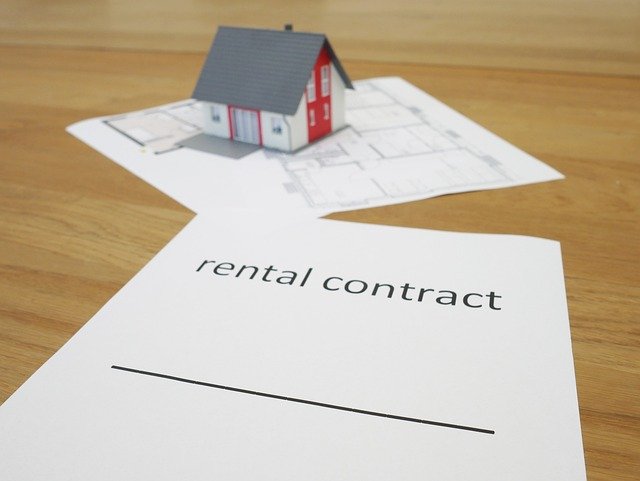Buy a Home Without a Mortgage Through Rent-to-Buy in Ireland: Practical Guide
Buying a home without a mortgage is possible with Rent-to-Buy, where you start as a tenant with a future purchase option. This guide explains the process, its benefits and risks, and key points to check for a future purchase. Whether you're a first-time buyer or preparing for ownership gradually, learn to avoid pitfalls and protect your purchase.

Rent-to-buy arrangements have gained attention as an alternative route to homeownership in Ireland, particularly for those facing barriers to traditional mortgage approval. These agreements allow tenants to rent a property with the option or obligation to purchase it after a specified period. While this pathway offers flexibility and opportunity, it also requires careful consideration of legal, financial, and practical factors.
How Rent-to-Buy Agreements Work in Ireland
A rent-to-buy agreement typically involves a tenant renting a property for a set period, usually between one and five years, with the option to purchase the home at the end of the term. During the rental period, a portion of the monthly rent may be credited toward the eventual purchase price. The agreement outlines the purchase price at the outset, which can protect buyers from market price increases. However, the structure of these agreements can vary significantly. Some contracts grant the tenant an option to buy, meaning they can choose whether to proceed with the purchase, while others create an obligation to buy, requiring the tenant to complete the purchase or face penalties. The terms, including the percentage of rent credited and the final purchase price, are negotiated between the landlord and tenant. Legal advice is strongly recommended to ensure the agreement is fair and enforceable.
Benefits of Becoming a Homeowner Without a Traditional Mortgage
Rent-to-buy arrangements offer several advantages for prospective homeowners. First, they provide an opportunity to secure a home without needing immediate mortgage approval, which is beneficial for individuals with limited credit history, self-employment income, or insufficient deposits. During the rental period, tenants can work on improving their financial situation, building savings, and enhancing their creditworthiness. Another benefit is the ability to lock in a purchase price early, protecting against potential market increases. This can be particularly valuable in areas experiencing rising property values. Additionally, tenants can live in the home before committing to purchase, allowing them to assess the property, neighborhood, and suitability for their long-term needs. For some, the psychological benefit of working toward ownership while renting provides motivation and stability. Rent-to-buy agreements can also offer more flexible terms than traditional mortgages, with negotiations tailored to individual circumstances.
Risks and Limitations of Rent-to-Buy Arrangements
Despite the benefits, rent-to-buy agreements carry significant risks. One major concern is the potential loss of accumulated credits if the tenant is unable to secure mortgage approval at the end of the rental period. If the purchase does not proceed, the tenant may forfeit the portion of rent that was credited toward the purchase price. Additionally, tenants are often responsible for maintenance and repairs during the rental period, which can be costly. Market fluctuations also pose a risk; if property values decline, the tenant may be locked into a higher purchase price than the current market value. Legal ambiguities can arise if the agreement is poorly drafted, leading to disputes over terms, responsibilities, or the purchase process. Some agreements may include clauses that favor the landlord, such as penalties for early termination or strict conditions for exercising the purchase option. Tenants should also be aware that not all lenders recognize rent credits as part of a deposit, which can complicate mortgage approval. Thorough legal review and financial planning are essential to mitigate these risks.
Legal Checks Before Signing a Rent-to-Buy Contract
Before entering a rent-to-buy agreement, several legal checks are critical. Prospective buyers should engage a solicitor experienced in property law to review the contract and ensure it protects their interests. Key areas to verify include the clarity of the purchase price, the percentage of rent credited toward the purchase, and the conditions under which the option to buy can be exercised. The solicitor should confirm that the landlord has clear legal title to the property and that there are no outstanding mortgages, liens, or legal disputes that could affect the sale. It is also important to ensure the agreement complies with Irish tenancy and property laws, including the Residential Tenancies Act. Tenants should verify their rights and responsibilities regarding property maintenance, insurance, and repairs. The contract should specify what happens if either party fails to meet their obligations, including provisions for dispute resolution. Additionally, prospective buyers should obtain an independent property valuation to ensure the agreed purchase price is fair and reflects current market conditions. Understanding the tax implications, such as stamp duty and potential capital gains considerations, is also advisable.
Steps to Successfully Purchase the Home Later
Successfully transitioning from renting to owning under a rent-to-buy agreement requires careful planning. First, tenants should focus on improving their financial health during the rental period. This includes building a strong credit score by paying bills on time, reducing outstanding debts, and avoiding new credit commitments. Saving additional funds for a deposit, closing costs, and potential repairs is also important. Tenants should maintain regular communication with the landlord to ensure both parties remain committed to the agreement. As the purchase date approaches, prospective buyers should begin the mortgage application process early, consulting with mortgage brokers or lenders to understand their borrowing capacity and available loan products. Gathering necessary documentation, such as proof of income, tax returns, and bank statements, will streamline the application. It is also advisable to have the property inspected by a qualified surveyor to identify any structural issues or necessary repairs before finalizing the purchase. Once mortgage approval is secured, the tenant should work closely with their solicitor to complete the legal transfer of ownership, ensuring all contract terms are fulfilled and the title is properly registered. Staying organized, proactive, and informed throughout the process increases the likelihood of a successful transition to homeownership.
Rent-to-buy agreements offer a viable alternative for those seeking homeownership in Ireland without traditional mortgage financing. While these arrangements provide flexibility and opportunity, they also require careful consideration of legal, financial, and practical factors. Prospective buyers should conduct thorough research, seek professional legal and financial advice, and ensure they fully understand the terms and obligations before committing. With proper planning and diligence, rent-to-buy can be a successful pathway to owning a home.




